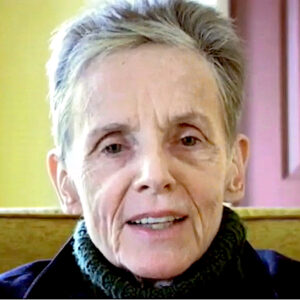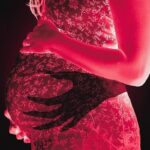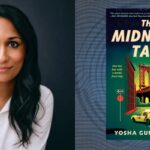
Hilary Plum on Terrorism, Autoimmune Disease, and Blurring the Self/Other Line
In Conversation with Eric LeMay on the New Books Network
The New Books Network is a consortium of author-interview podcast channels dedicated to raising the level of public discourse by introducing serious authors to a wide public via new media. They publish 100 new interviews every month and serve a large, worldwide audience.
*
This week on New Books in Literature, Eric LeMay speaks with Hilary Plum about her new book Watchfires (Rescue Press, 2016). Watchfires isn’t so much a book as an exploratory biopsy of our body politic and our collective psyche. Plum examines our moment at the cellular level—whether that’s a cancerous cell or a terrorist cell—with the aim of understanding what’s happened to us in the Iraq War, in the attacks on 9/11, at the Boston Marathon bombings, or in the time-out-of-time we experience when we suffer from chronic illness. How do we make sense of a global world where drones, autoimmune disease, migrants, suicide, and mass violence all feel interconnected?
That’s exactly what Plum sets out to do. In prose as keen and incisive as a scalpel, she locates and exposes the malignancies of our time. She doesn’t offer us a cure—who could?—but she gives us a brilliant diagnoses of how deeply the disease and diseases from which we suffer run.
From the episode
“When you think about terror is terms of autoimmune disease it challenges that self/other distinction.”
Eric LeMay: What do we gain by thinking of terrorism in terms of autoimmune disease and autoimmune disease in terms of terrorism? When we bring these together what do they illuminate?
Hilary Plum: I think that what’s at stake in the question of autoimmune disease is the self/other distinction. So immediately when you think about terror is terms of autoimmune disease it challenges that self/other distinction that had been being relied upon. . . . So much of the coverage of terrorism in the way that the media and political leaders have activated it and mobilized it as a concept has relied a lot on us/them thinking, a lot of self/other distinctions, so using that idea of autoimmune disease is a way of getting at that us/them distinction in a basic way.
*
“The closer you get, the more you’re imagining.”
EL: One of the daring things about the book is that you also engage in creating a narrative around Dzhokhar Tsarnaev, one of the brothers convicted of the Boston Marathon Bombing on April 15, 2013.
HP: The book is nonfiction. The major part of the book is a long essay that is nonfictional. And then there’s a little fictional coda that is a series of dialogues with Dzhokhar Tsarnaev. . . . I guess I wanted to see what that was like and what it would do. And also to get at the fact that there can’t really be any conversation with Tsarnaev. He’s not accessible, and the conversation with him wouldn’t satisfy. I don’t think he has answers to our questions or his own questions. The fiction part was meant to show that the closer you get, the more you’re imagining.
__________________________________
More bookish conversations from this week at the New Books Network.
New Books Network
The New Books Network is a consortium of author-interview podcast channels dedicated to raising the level of public discourse by introducing serious authors to a wide public via new media. We publish 100 new interviews every month and serve a large, worldwide audience. The NBN is staffed by Founder & Editor-in-Chief, Marshall Poe, and Co-Editor, Leann Wilson. Feel free to contact either one of us for more information.



















